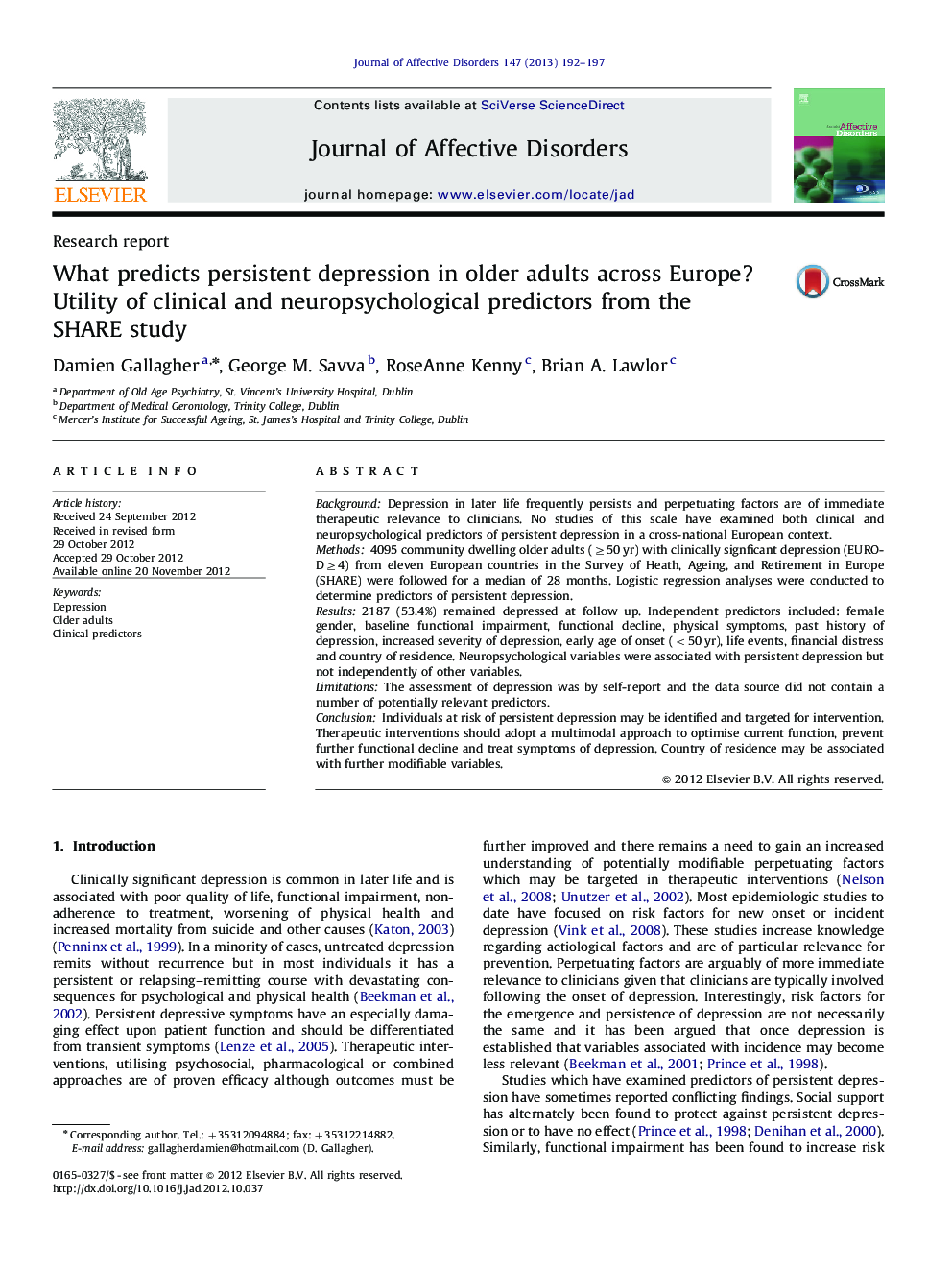| Article ID | Journal | Published Year | Pages | File Type |
|---|---|---|---|---|
| 6234769 | Journal of Affective Disorders | 2013 | 6 Pages |
BackgroundDepression in later life frequently persists and perpetuating factors are of immediate therapeutic relevance to clinicians. No studies of this scale have examined both clinical and neuropsychological predictors of persistent depression in a cross-national European context.Methods4095 community dwelling older adults (â¥50 yr) with clinically signficant depression (EURO-Dâ¥4) from eleven European countries in the Survey of Heath, Ageing, and Retirement in Europe (SHARE) were followed for a median of 28 months. Logistic regression analyses were conducted to determine predictors of persistent depression.Results2187 (53.4%) remained depressed at follow up. Independent predictors included: female gender, baseline functional impairment, functional decline, physical symptoms, past history of depression, increased severity of depression, early age of onset (<50 yr), life events, financial distress and country of residence. Neuropsychological variables were associated with persistent depression but not independently of other variables.LimitationsThe assessment of depression was by self-report and the data source did not contain a number of potentially relevant predictors.ConclusionIndividuals at risk of persistent depression may be identified and targeted for intervention. Therapeutic interventions should adopt a multimodal approach to optimise current function, prevent further functional decline and treat symptoms of depression. Country of residence may be associated with further modifiable variables.
